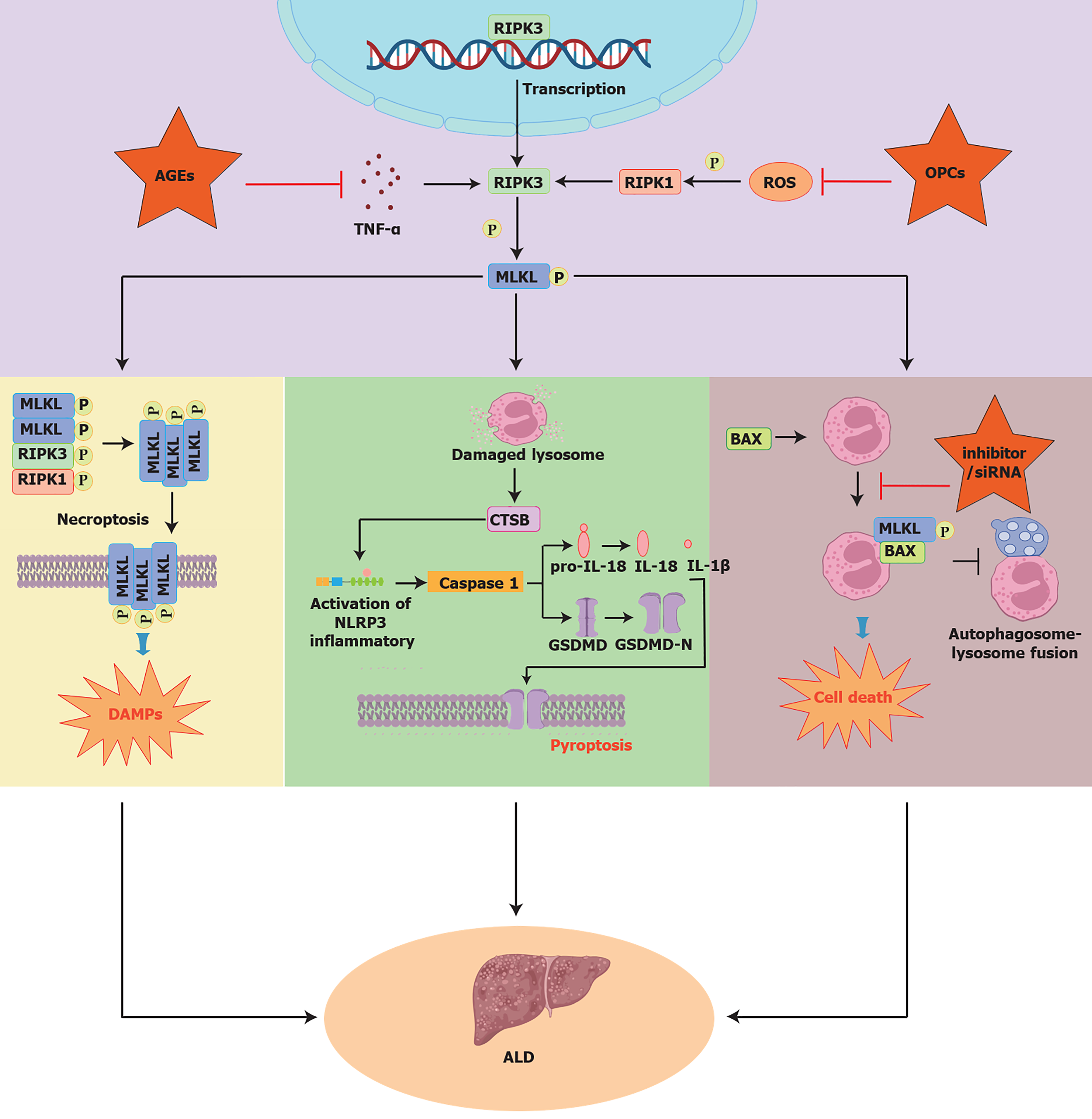Copyright
©The Author(s) 2025.
World J Gastroenterol. Apr 7, 2025; 31(13): 104546
Published online Apr 7, 2025. doi: 10.3748/wjg.v31.i13.104546
Published online Apr 7, 2025. doi: 10.3748/wjg.v31.i13.104546
Figure 1 Mixed lineage kinase domain-like protein affects alcoholic liver disease through multiple signaling pathways.
Mixed lineage kinase domain-like protein (MLKL) modulates the molecular mechanisms of alcoholic liver disease (ALD) through multiple signaling pathways. From left to right: MLKL, regulated by appendicitis-derived AGEs, acts as a downstream target in the TLR4/NF-κB/MLKL necrosis pathway, driving ALD onset and progression[7]. Procyanidins (OPCs) attenuate acute alcohol-induced liver injury by inhibiting cell pyroptosis through the ROS-MLKL-CTSB-NLRP3 axis[8]. Additionally, activated BAX binds to MLKL, promoting its translocation to the lysosomal membrane and triggering LMP, which worsens alcohol-induced lipotoxicity, induces cell death, and disrupts autophagic flux, thus contributing to hepatocyte death in ALD[9]. ROS: Reactive oxygen species; ALD: Alcoholic liver disease; MLKL: Mixed lineage kinase domain-like protein.
- Citation: Xi Y, Guo D, Li S, Guo JY, Chen XZ, Tang JF, Zhou CF. Targeting mixed lineage kinase domain-like protein's non-necroptosis role: A new horizon in anti-inflammatory therapy for alcoholic liver disease. World J Gastroenterol 2025; 31(13): 104546
- URL: https://www.wjgnet.com/1007-9327/full/v31/i13/104546.htm
- DOI: https://dx.doi.org/10.3748/wjg.v31.i13.104546









